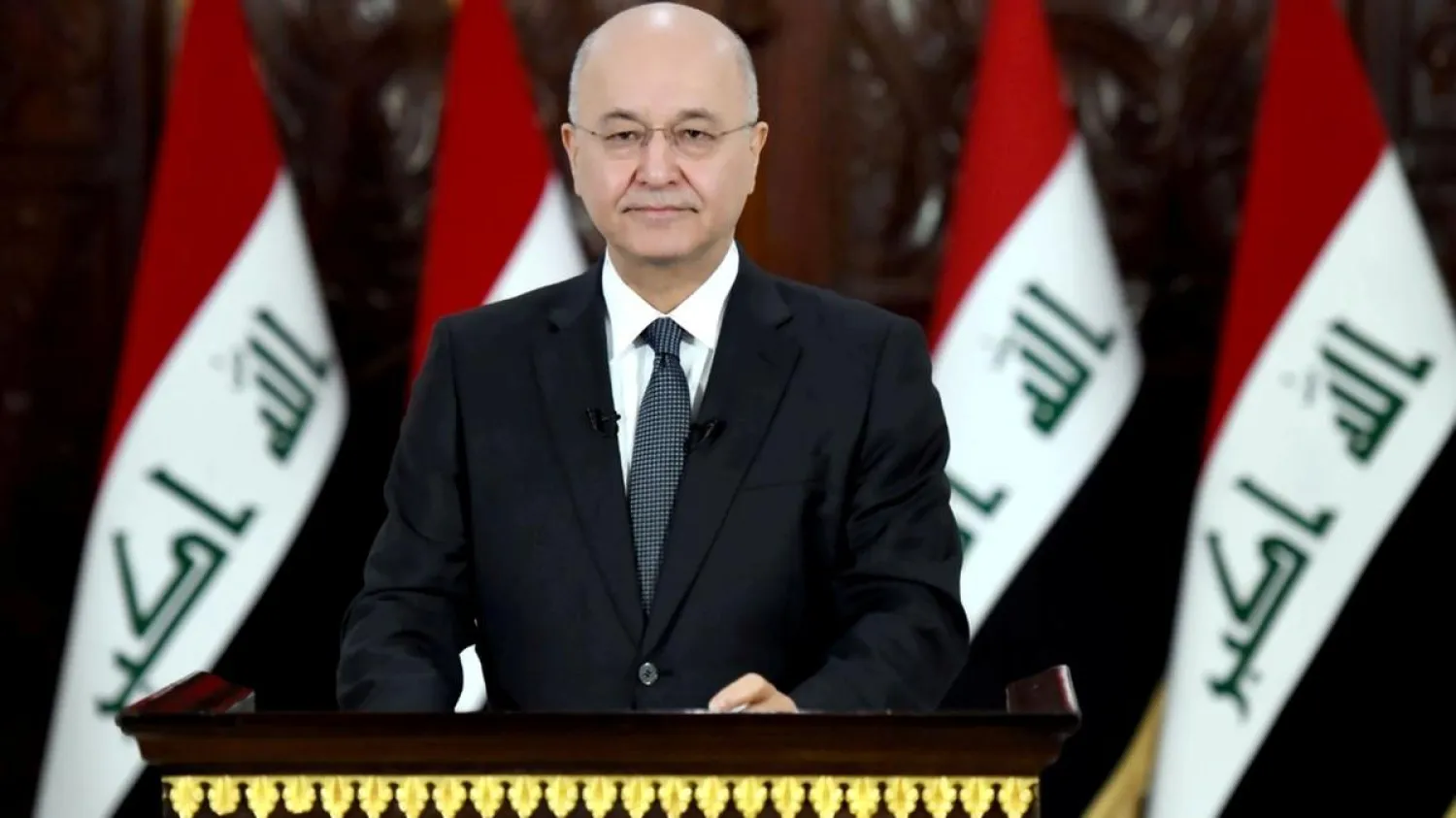Iraqi President Barham Salih confirmed Thursday the decision to end the presence of 2,500 US forces and foreign combat forces in Iraq.
"There is a decision to end the presence of American and foreign combat forces," noting that "there are no more than 2,500 personnel in the country.
In a statement published by the Iraqi News Agency, Salih stressed that Iraq's relationship with the US is fundamental and established on common interests, and the bilateral strategic dialogue deals with all political, economic, cultural, and security issues.
Speaking after his meeting with the Chaldean Patriarch, Louis Sako, Salih also pointed out that the relationship between Baghdad and Erbil should be correctly established and each party must know its rights and duties through national dialogue.
Earlier, Prime Minister Mustafa al-Kadhimi called for a national dialogue between the various Iraqi political forces, parties, and sects.
The President emphasized the need for dialogue to resolve disputes and discuss the outstanding issues in the country.
A number of Iraqi political forces supported Kadhimi's call for national dialogue, however, Shiite parties of al-Fatah coalition were doubtful about the timing and purpose of the dialogue.
Some parties believe that the cabinet’s mission is to hold early elections and control weapons, while other blocs indicated that the government should remove foreign forces from Iraq.
Earlier, NATO announced it will gradually increase its forces in Iraq from 500 to about 4,000, according to a prior agreement with Baghdad.
The PM said the foreign presence in Iraq had been reduced by 62 percent since the launch of the strategic dialogue between Baghdad and Washington in July 2020.
Salih asserted during an interview with Sky News Arabia the importance of the relationship with the US even with the decision to end the foreign presence.
Salih asserted that "the US forces are present at the request of the Iraqi government."
Meanwhile, the National Security Adviser Qasim al-Araji discussed with the US ambassador in Baghdad Matthew Tueller the relationship between Baghdad and Washington during the coming period.
Araji's office indicated that the two officials discussed the strategic dialogue and other ongoing dialogues, launched at the request of the Iraqi government.
The ambassador emphasized that his country looks forward to ensuring that the dialogue with Iraq is not limited to security issues, but addresses the scientific, economic, cultural, and other aspects as well.
The meeting also touched on the situation of al-Hol camp on the border with Syria. Araji indicated that Iraq needs a practical and final solution to the issue with the participation of the international community in this regard.
He warned that the camp’s current situation is a ticking bomb with the presence of 20,000 children who pose a threat to Iraq and the region, warning that lack of cooperation between all parties threatens the security of the country, the region, and the world.









